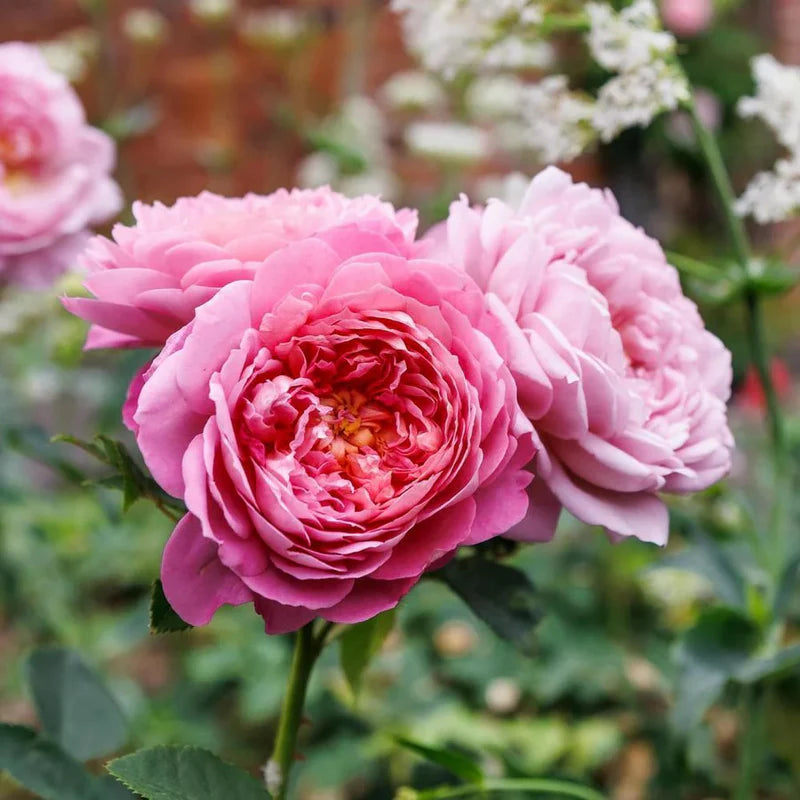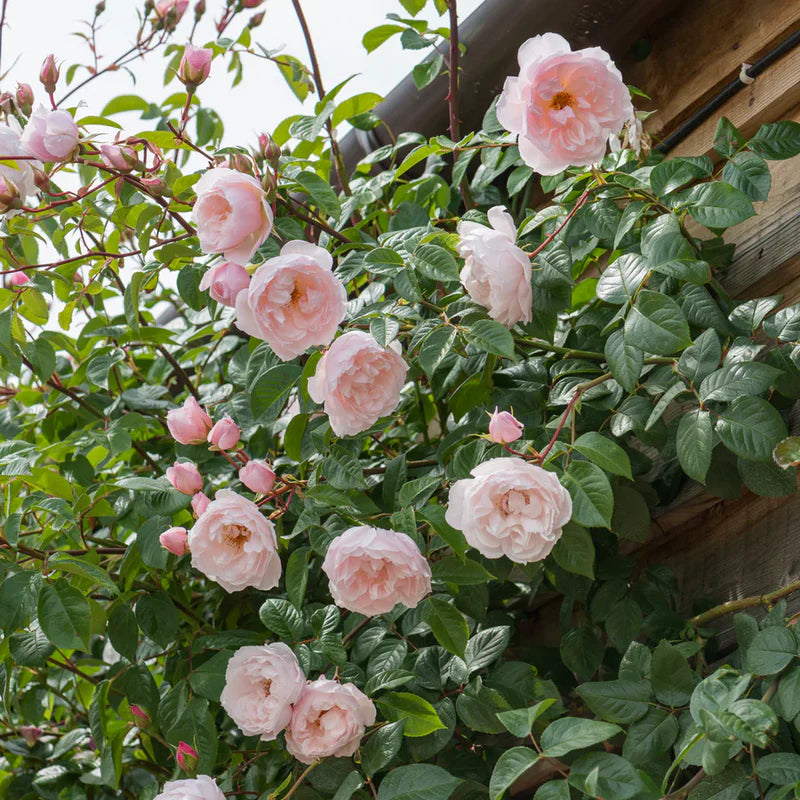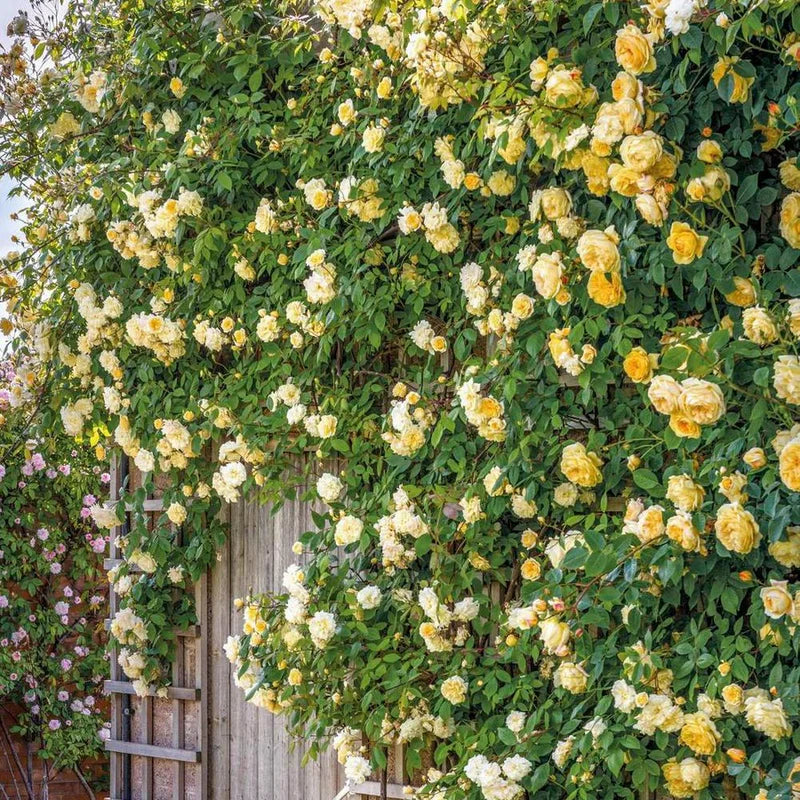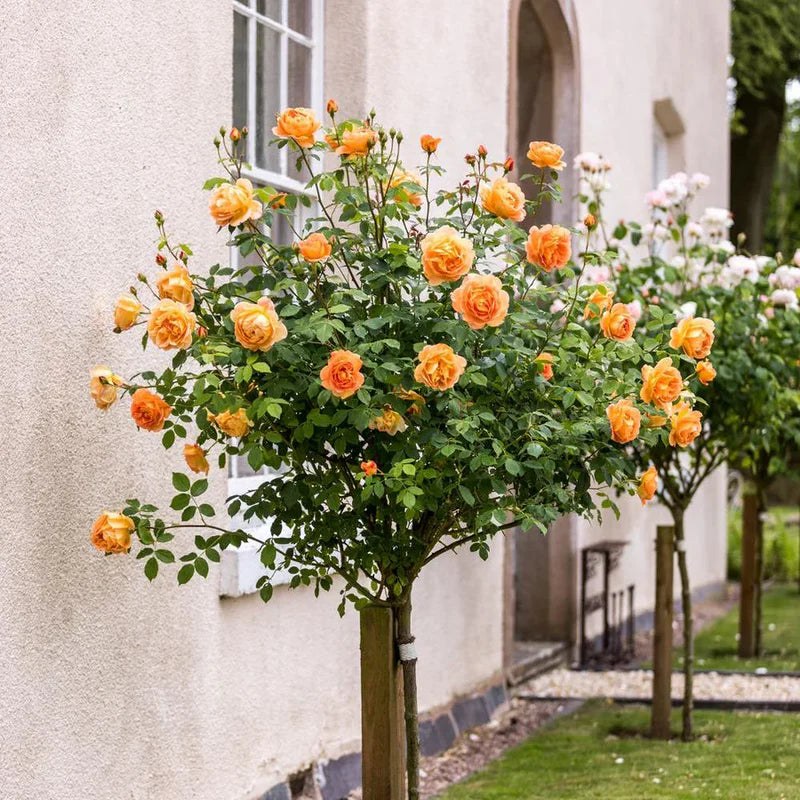Rose Care
-
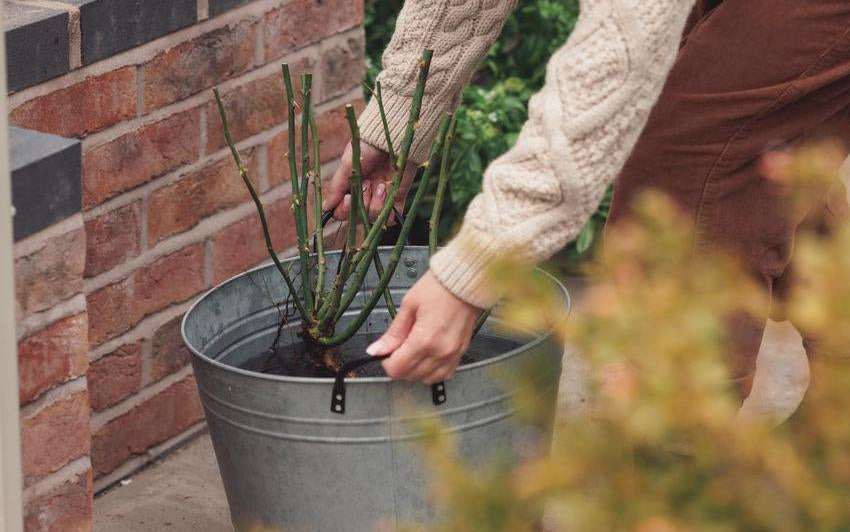 How to Keep English Roses at Their Best Until They Can Be PlantedGifting a rose is a thoughtful and much-loved gesture. Even in winter, when the garden rests and the days grow quieter, a rose carries the promise of colour and new life in the year ahead. Often, though, roses are bought well before they are given. If yours needs to be kept for a short while before it can be planted, caring for it is wonderfully simple. Roses are far more patient than they appear and will remain at their best with just a little attention.Read more
How to Keep English Roses at Their Best Until They Can Be PlantedGifting a rose is a thoughtful and much-loved gesture. Even in winter, when the garden rests and the days grow quieter, a rose carries the promise of colour and new life in the year ahead. Often, though, roses are bought well before they are given. If yours needs to be kept for a short while before it can be planted, caring for it is wonderfully simple. Roses are far more patient than they appear and will remain at their best with just a little attention.Read more -
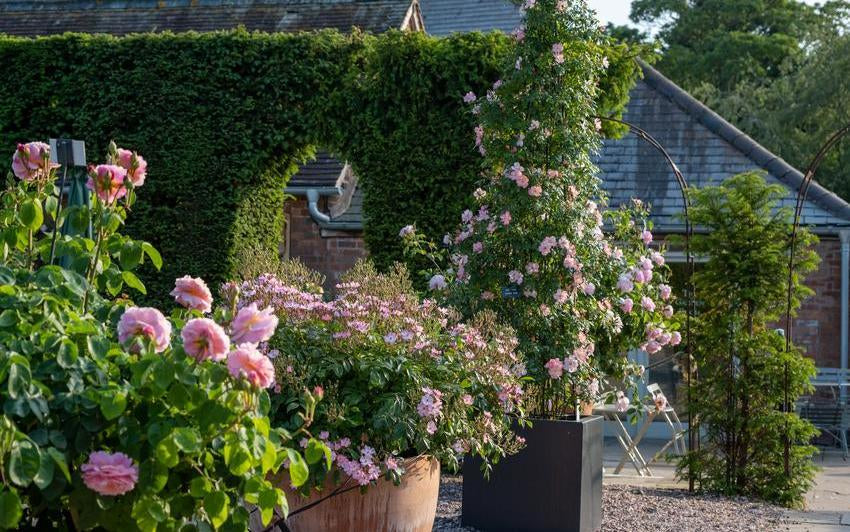 The Basics of Growing RosesRoses bring a quiet happiness to a garden. Their beauty feels effortless once they are settled, and even a new gardener can grow them with success. With sunlight, sound soil, and a little seasonal care, roses will flower generously and become dependable companions through the year.Read more
The Basics of Growing RosesRoses bring a quiet happiness to a garden. Their beauty feels effortless once they are settled, and even a new gardener can grow them with success. With sunlight, sound soil, and a little seasonal care, roses will flower generously and become dependable companions through the year.Read more -
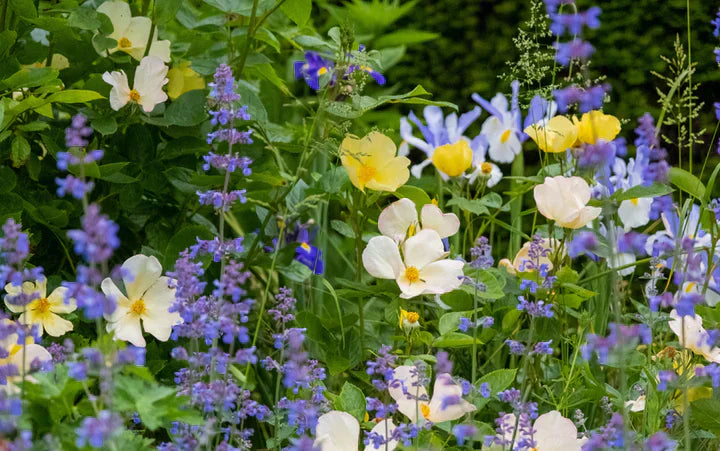 A Year With Roses: Seasonal Goals for Your GardenRoses guide the pace of the garden year. Their summer display is shaped by a series of small, thoughtful tasks that unfold long before the first bloom appears. Each season offers its own moment to step in and help your roses flourish.Read more
A Year With Roses: Seasonal Goals for Your GardenRoses guide the pace of the garden year. Their summer display is shaped by a series of small, thoughtful tasks that unfold long before the first bloom appears. Each season offers its own moment to step in and help your roses flourish.Read more -
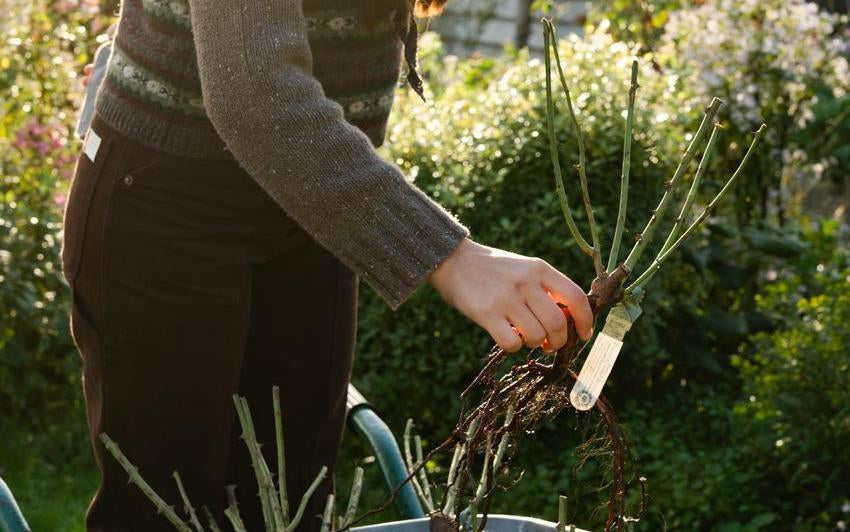 Why the Best Rose Gardens Begin in WinterWinter is often mistaken for an ending. Beds are bare, borders are quiet, and the garden appears to have paused. Yet for roses, winter is not an absence of growth but the moment when everything important begins. Beneath the soil and within each stem, the foundations of the coming year are already being laid.Read more
Why the Best Rose Gardens Begin in WinterWinter is often mistaken for an ending. Beds are bare, borders are quiet, and the garden appears to have paused. Yet for roses, winter is not an absence of growth but the moment when everything important begins. Beneath the soil and within each stem, the foundations of the coming year are already being laid.Read more -
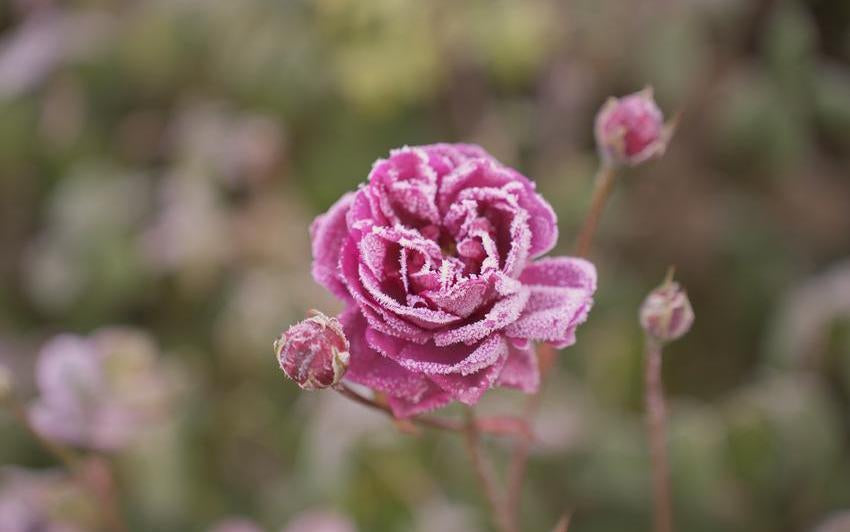 Caring for Roses Through WinterWinter draws a different map across the garden. Borders lose their summer softness, the air grows crisp, and each plant stands in its true form. Roses, perhaps more than anything else, reveal their strength now. Their branches hold the memory of last season’s bloom, and beneath the soil they gather themselves for the next. Looking after them at this time of year becomes less a checklist of jobs and more a steady, reassuring conversation with the season ahead.Read more
Caring for Roses Through WinterWinter draws a different map across the garden. Borders lose their summer softness, the air grows crisp, and each plant stands in its true form. Roses, perhaps more than anything else, reveal their strength now. Their branches hold the memory of last season’s bloom, and beneath the soil they gather themselves for the next. Looking after them at this time of year becomes less a checklist of jobs and more a steady, reassuring conversation with the season ahead.Read more -
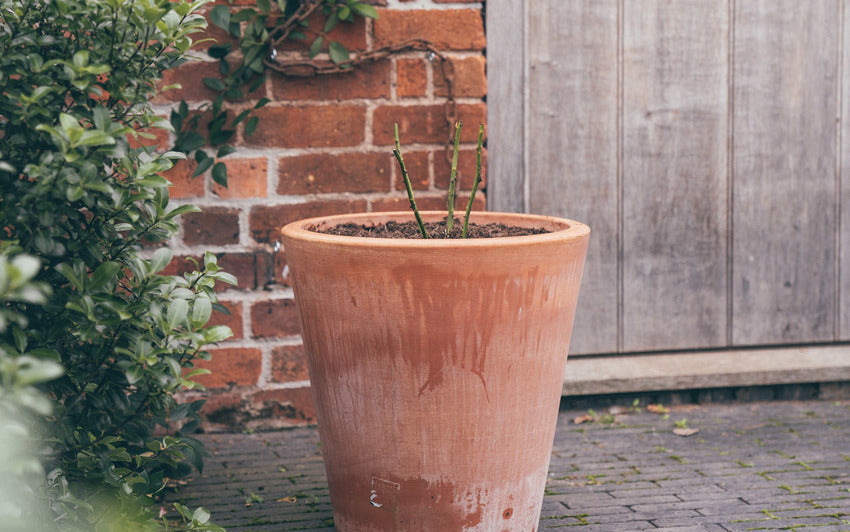 Planting Bare Root Climbing Roses in a Pot: Step-by-StepBare root climbing roses bring vertical grace and fragrance to patios, terraces and courtyards, creating structure and height where space is limited. When planted carefully in a large container, they will flourish and flower generously, rewarding you with arching stems covered in blooms from early summer through to autumn.Read more
Planting Bare Root Climbing Roses in a Pot: Step-by-StepBare root climbing roses bring vertical grace and fragrance to patios, terraces and courtyards, creating structure and height where space is limited. When planted carefully in a large container, they will flourish and flower generously, rewarding you with arching stems covered in blooms from early summer through to autumn.Read more -
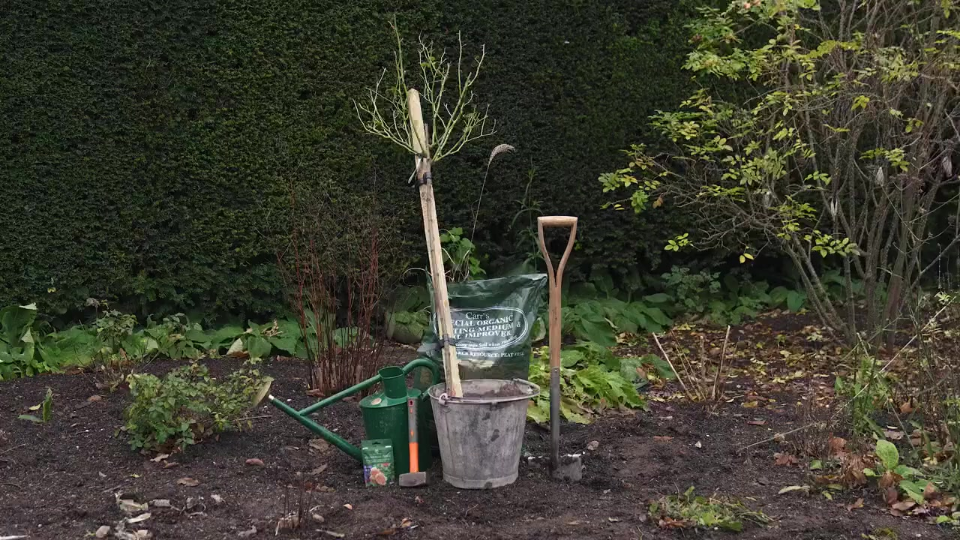 How to Plant Bare Root Standard Roses: Step-by-StepStandard roses, also known as tree roses, bring structure, height and a sense of grace to the garden. Their blooms are carried high on slender stems, creating a striking focal point among lower planting. Whether standing proudly in a border or adding formality beside a doorway, they bring charm and refinement to any setting.Read more
How to Plant Bare Root Standard Roses: Step-by-StepStandard roses, also known as tree roses, bring structure, height and a sense of grace to the garden. Their blooms are carried high on slender stems, creating a striking focal point among lower planting. Whether standing proudly in a border or adding formality beside a doorway, they bring charm and refinement to any setting.Read more -
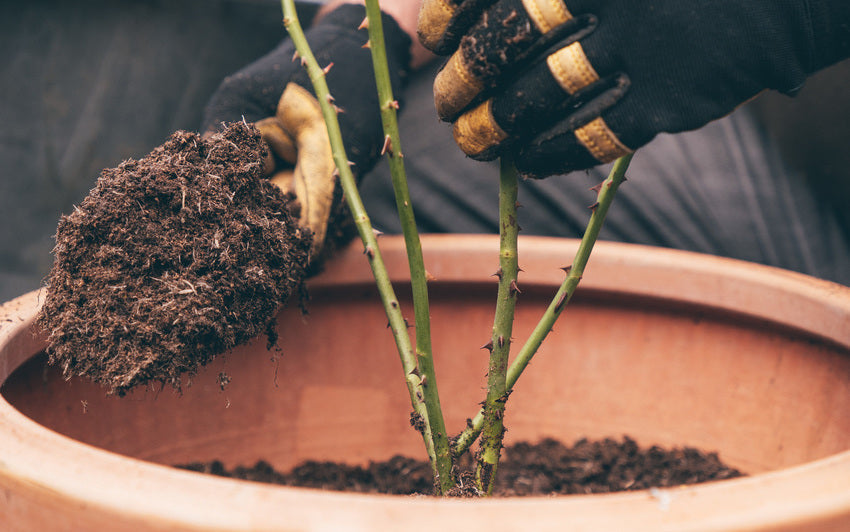 Planting Bare Root Shrub Roses in a Pot: Step-by-StepBare root shrub roses are a perfect choice for growing in containers, offering beautiful, bushy growth and abundant, fragrant blooms throughout the summer and into autumn. Planting them in a pot allows gardeners without a garden bed to enjoy the elegance of English Roses, while giving the plant the freedom to establish strong roots in a controlled environment. By following a few careful steps, your rose will settle naturally and flourish for years to come.Read more
Planting Bare Root Shrub Roses in a Pot: Step-by-StepBare root shrub roses are a perfect choice for growing in containers, offering beautiful, bushy growth and abundant, fragrant blooms throughout the summer and into autumn. Planting them in a pot allows gardeners without a garden bed to enjoy the elegance of English Roses, while giving the plant the freedom to establish strong roots in a controlled environment. By following a few careful steps, your rose will settle naturally and flourish for years to come.Read more -
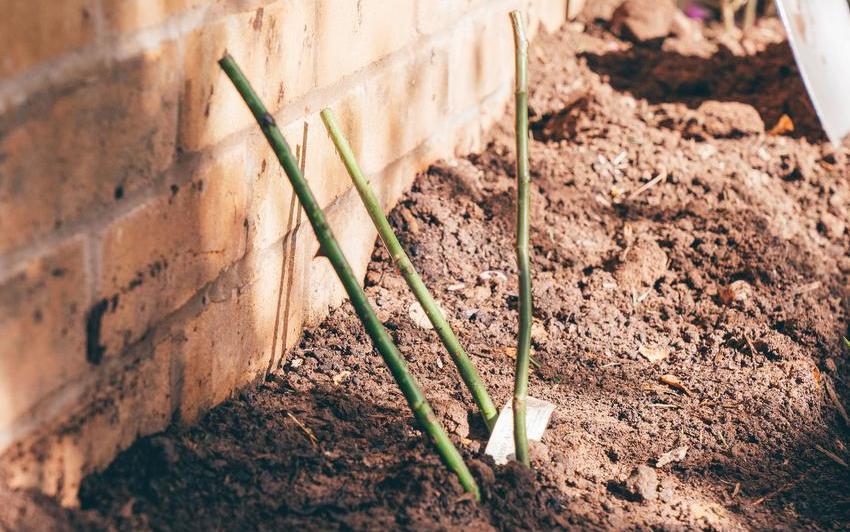 Planting Bare Root Climbing and Rambler Roses in the Ground: Step-by-StepBare root climbing and rambling roses bring both structure and romance to the garden, offering a traditional and sustainable way to cover walls, fences, and arches with abundant blooms. Planted between autumn and early spring, these roses establish naturally through the cooler months, ready to send out vigorous new shoots when warmth returns. With a little preparation and care, they will reward you for many years with graceful growth and exquisite fragrance.Read more
Planting Bare Root Climbing and Rambler Roses in the Ground: Step-by-StepBare root climbing and rambling roses bring both structure and romance to the garden, offering a traditional and sustainable way to cover walls, fences, and arches with abundant blooms. Planted between autumn and early spring, these roses establish naturally through the cooler months, ready to send out vigorous new shoots when warmth returns. With a little preparation and care, they will reward you for many years with graceful growth and exquisite fragrance.Read more -
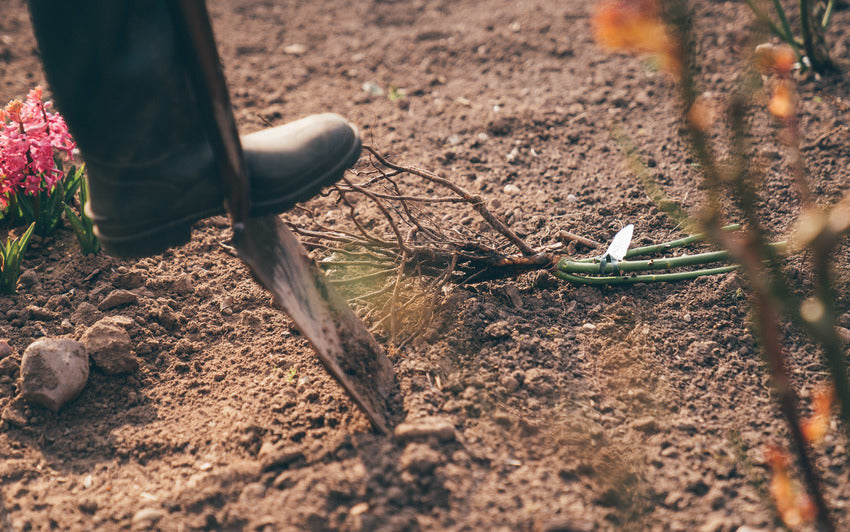 Planting Bare Root Shrub Roses in the Ground: Step-by-StepBare root shrub roses are a gardener’s delight, offering a traditional, sustainable, and rewarding way to add colour and fragrance to your garden. Delivered simply as stems and roots, they are designed to work in harmony with the seasons. Planted in autumn through to spring, they settle naturally into the soil over the colder months, ready to burst into life and reward you with blooms the following year. Easy to handle, they are a dependable choice for both new and experienced gardeners.Read more
Planting Bare Root Shrub Roses in the Ground: Step-by-StepBare root shrub roses are a gardener’s delight, offering a traditional, sustainable, and rewarding way to add colour and fragrance to your garden. Delivered simply as stems and roots, they are designed to work in harmony with the seasons. Planted in autumn through to spring, they settle naturally into the soil over the colder months, ready to burst into life and reward you with blooms the following year. Easy to handle, they are a dependable choice for both new and experienced gardeners.Read more -
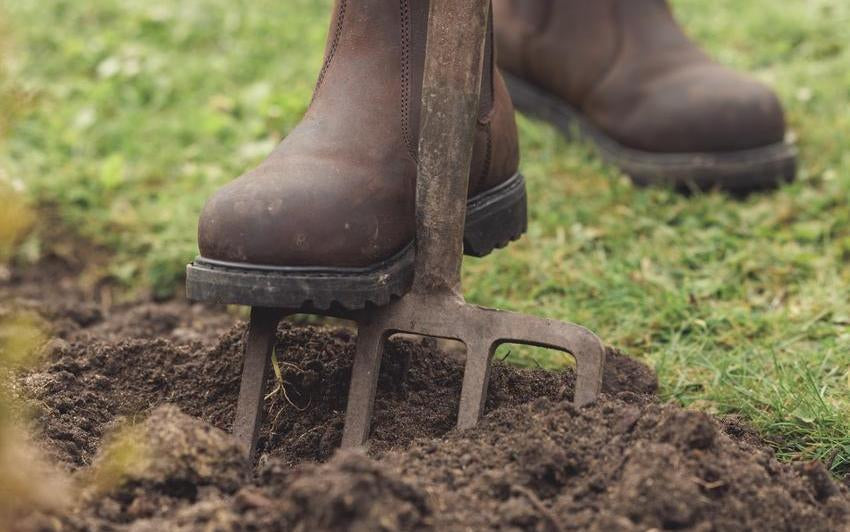 Autumn Care for English RosesAs the last blooms of summer fade and the rose garden shifts into autumn, English Roses begin their preparation for winter. The days grow shorter, the air cooler, and the garden takes on a warm, golden light. This is the ideal moment to support your roses, helping them stay healthy, nourished, and ready for the coming season.Read more
Autumn Care for English RosesAs the last blooms of summer fade and the rose garden shifts into autumn, English Roses begin their preparation for winter. The days grow shorter, the air cooler, and the garden takes on a warm, golden light. This is the ideal moment to support your roses, helping them stay healthy, nourished, and ready for the coming season.Read more -
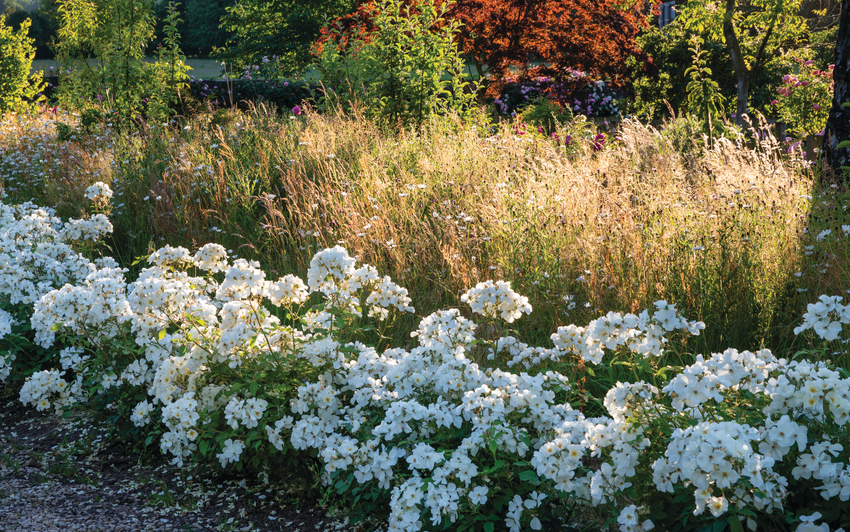 Wind-Swept Charm: English Roses for Exposed LocationsGardens high on hills, offer breathtaking views, but the combination of wind, cold winters, and shorter growing seasons can make growing roses a challenge. With careful selection and planting, even these exposed gardens can thrive with elegant, fragrant blooms.Read more
Wind-Swept Charm: English Roses for Exposed LocationsGardens high on hills, offer breathtaking views, but the combination of wind, cold winters, and shorter growing seasons can make growing roses a challenge. With careful selection and planting, even these exposed gardens can thrive with elegant, fragrant blooms.Read more
Showing 12 of 46 items

